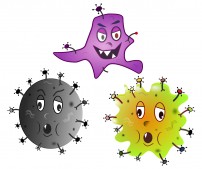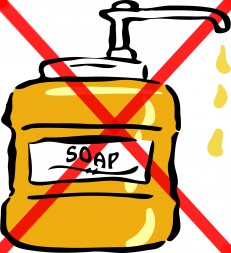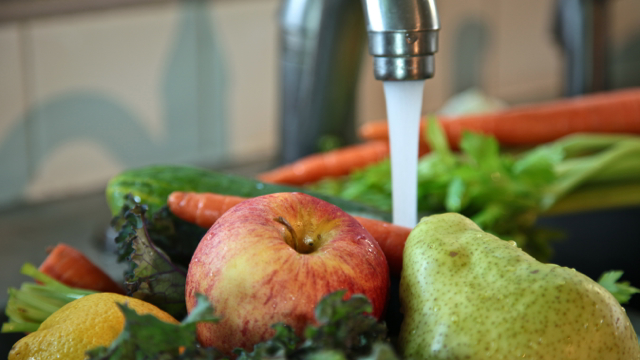Everybody eats, and no one wants to eat something that could make you sick. But there’s a lot of misinformation out there about how and whether you should wash your food.
Food safety is an important issue. The U.S. Centers for Disease Control and Prevention estimates that each year one in six people in the United States will get sick because of food-borne illness. And risks can be increased or decreased at every point between the farm and your fork. Yes, you want to make sure to cook your food to the appropriate temperature, but here are some other tips to help you make good decisions in the kitchen.
 1. Don’t Wash Meat
1. Don’t Wash Meat
Some people think that you’re supposed to wash chicken, turkey, or other meats before cooking. Those people are wrong. “Research shows that washing meat can spread dangerous bacteria around your kitchen or food preparation area,” said Ben Chapman, a food safety researcher at North Carolina State University. “And washing poultry under running water can spray surface contamination up to three feet away. We cook meat to make it safer; washing meat can only make a meal riskier.”
 2. Washing Fruits and Veggies Only Removes up to 99 Percent of Pathogens
2. Washing Fruits and Veggies Only Removes up to 99 Percent of Pathogens
“That seems good, but it’s not great,” Chapman said. By comparison, cooking food can cut the number of bacteria or other microbial pathogens by 99.9999 percent. And that 0.9999 percent difference can be important. If a food is contaminated by thousands of microbes, washing off 99 percent means that dozens will be left behind -- and that’s enough to make you sick. That is why people who are immunocompromised, such as some chemotherapy patients, are often discouraged from eating raw fruits and vegetables.
 3. Don’t Use Soap
3. Don’t Use Soap
“Although washing has its limitations, vigorously rinsing produce under running water is the most effective way to remove the microbes that cause foodborne illnesses,” Chapman said. You don’t need to use soap or special cleaning solutions. In fact, using soap can actually introduce additional risk, because soaps may contain chemicals that aren’t intended for human consumption.


